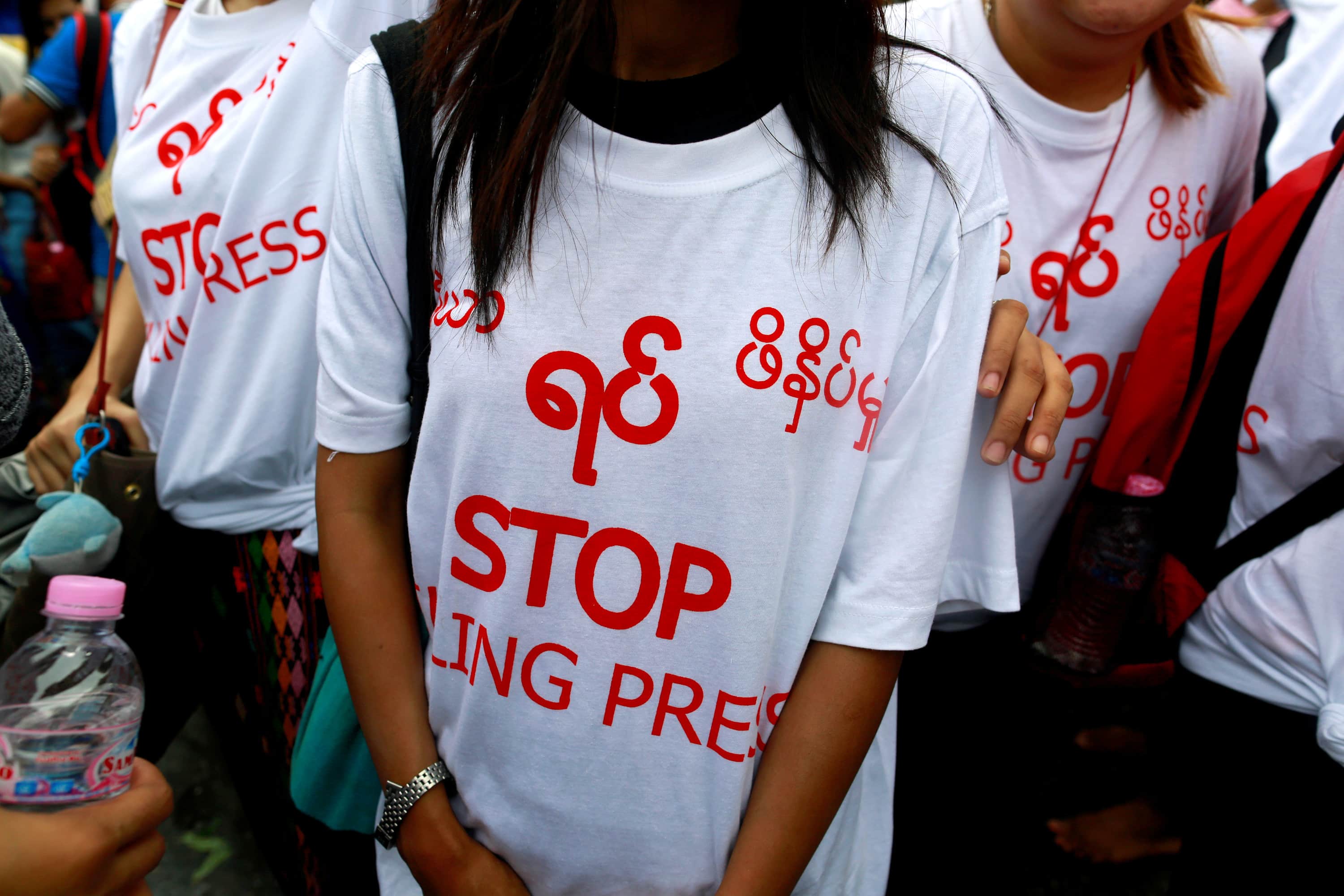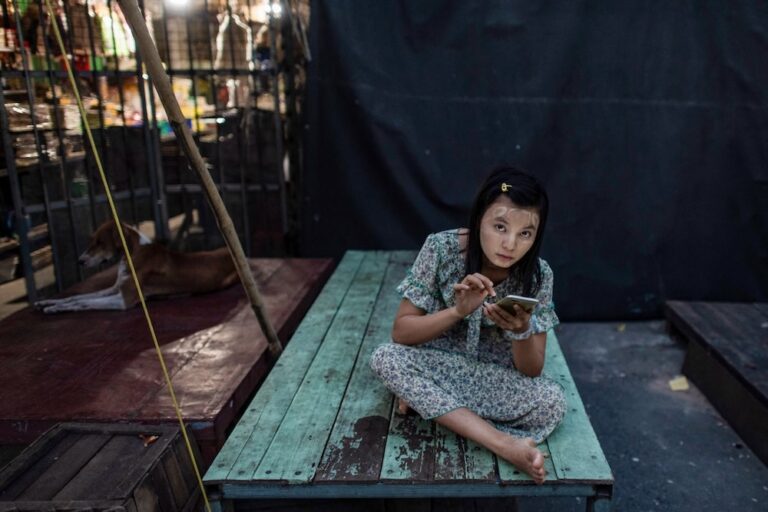Journalists and media and human rights organisations in Burma and abroad have reacted with shock to the 10 years' jail with hard labour sentences handed down in the "Unity journal" case over a defence facility report.
UPDATE from Mizzima News: Magway court grants Unity five the right to appeal, says lawyer (22 July 2014)
Journalists and media and human rights organisations in Myanmar and abroad have reacted with shock and dismay to the 10 years’ jail with hard labour sentences handed down in the Unity journal case.
A court in Magway Region imposed the sentence on the weekly publication’s chief executive officer and four reporters on July 10, 2014 over a report the journal carried in January that a military-run factory was producing chemical weapons, a claim denied by the government.
“This is a very dark day for freedom of expression in Myanmar,” Rupert Abbott, the deputy Asia-Pacific director of Amnesty International, was quoted as saying in reactions to the sentences reported by Mizzima Daily on July 11.
“These five media workers have done nothing but cover a story that is in the public interest,” Mr Abbott said. “Amnesty International considers all five men to be prisoners of conscience and calls for their immediate and unconditional release,” he said.
“All media people are shocked by these sentences; no one expected the punishment to be that harsh,” said U Myint Kyaw, the secretary of the Myanmar Journalist Network.
“Now it is clear that they see the media as the enemy,” U Myint Kyaw said. “This will not help to enhance the dignity and image of the government in the international arena,” he said.
“This decision by the Magway court is a grave setback for press freedom,” said Benjamin Ismail, the head of Reporters without Borders Asia-Pacific desk. “Progress had been made but this case marks a return to a dark time when journalists and bloggers who did their job were jailed on national security charges or for allegedly trying to overthrow the government,” he said.
“With the 2015 election drawing near, the government, ruling party and the military will not tolerate criticism from the media,” said Ma Aye Thu San, a senior reporter with Seven Days Daily. “The freedom of the press is again threatened,” she said. “This is not about Unity journal alone; this is a threat to all media.”
The Southeast Asian Press Alliance was extremely disturbed by the verdict and heavy sentences passed against the journalists, said SEAPA’s executive director, Ms Gayathry Venkiteswaran.
“The grounds for the charge and the outcome are disproportionate to the problem at hand,” Ms Venkiteswaran said.
“We condemn the criminalisation of media work and in this case, the punishment of hard labour meted out to the journalists,” she said.
“No journalist should have to face this kind of action for their work, and in the case of the Unity journal, the issue covered clearly had immense public interest.
“The use of laws in the guise of protecting state secrets, which are often a wide net to prevent disclosure, can only be seen in bad faith.”
The secretary of the Interim Press Council, U Kyaw Min Swe, said it was the duty of journalists and the media to “point out and criticise”, adding that the reform process had received extensive coverage since the government came to power.
“In every country, governments must be tolerant and broad-minded about criticism from opposition parties, civil society, international organisations and the media,” U Kyaw Min Swe said.
“Some media people are not professional, some are experienced. If they make mistakes, the government must be broad-minded and forgive them the first time,” he said.
Newspaper veteran and member of the Myanmar Journalists’ Association, U Thiha Saw, said journalists had a responsibility to maintain ethical standards and strive for accuracy.
“The government must ensure there is a free and fair judicial system,” U Thiha Saw said.
“The judicial system needs to be reformed and if it is not we will face this kind of situation again. In a transitional period like ours, you need to build trust and understanding,” he said.



